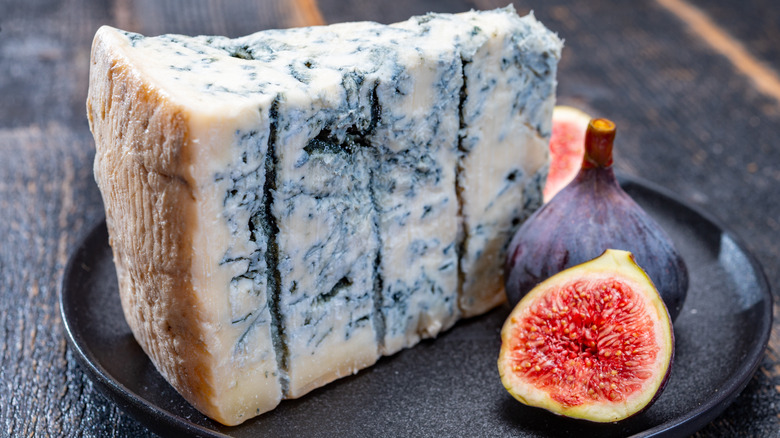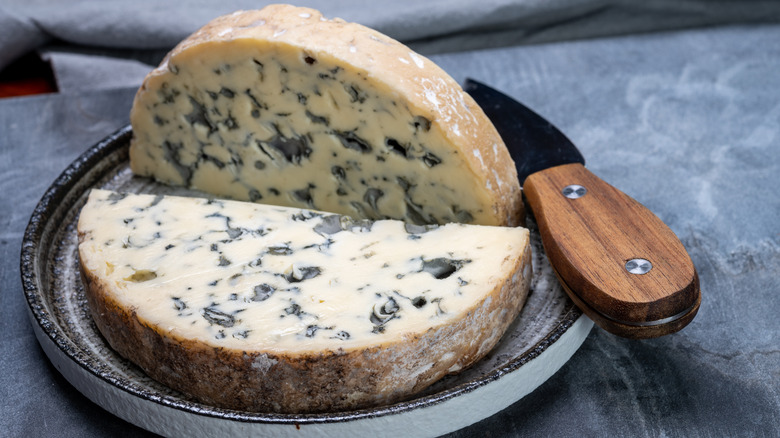Is It Dangerous To Eat Blue Cheese During Pregnancy?
When you're pregnant, there are a lot of things you can't do anymore, and that includes eating some of your favorite foods. As a matter of fact, there are quite a few foods and beverages that are no longer safe for you to consume during pregnancy. For instance, experts highly recommend avoiding alcohol throughout the duration of your pregnancy (via CNET). That's because alcohol can affect fetal development — it can cause birth defects or deformities of the brain and facial features in a developing fetus.
Alcohol consumption during pregnancy can also cause what's known as fetal alcohol spectrum disorders, which can lead to physical and developmental disabilities. Experts also recommend proceeding with caution when it comes to caffeine consumption. While there's no need to completely give up caffeine during pregnancy, current guidance states that you should not consume more than 200 milligrams per day. Research has shown that consuming any more than this can potentially increase your risk of miscarriage. Other foods you should avoid during pregnancy include processed meat, raw fish and meat, raw eggs, and unwashed fruits and vegetables, but what about dairy products like cheese?
Avoid eating unpasteurized blue cheese during pregnancy
As it turns out, soft, unpasteurized cheeses like blue cheese should be largely eliminated from your diet during pregnancy. That's because blue cheese is typically made with raw or unpasteurized milk, which carries a higher risk of contamination with listeria — a type of bacteria that causes foodborne illness (via Healthline). Symptoms of listeria infection (listeriosis) can be much more severe when you're pregnant, some of which include fever, headache, upset stomach, stiff neck, confusion, convulsions, and loss of balance.
In some cases, it can even cause bacterial meningitis, which is characterized by inflammation or swelling around the brain and spinal cord. On the bright side, not all blue cheese is made with unpasteurized milk — you can find out by looking at the list of ingredients on the label. In addition, cooking blue cheese made with raw milk can kill any potentially harmful bacteria on the cheese, making it safe to eat during pregnancy.


